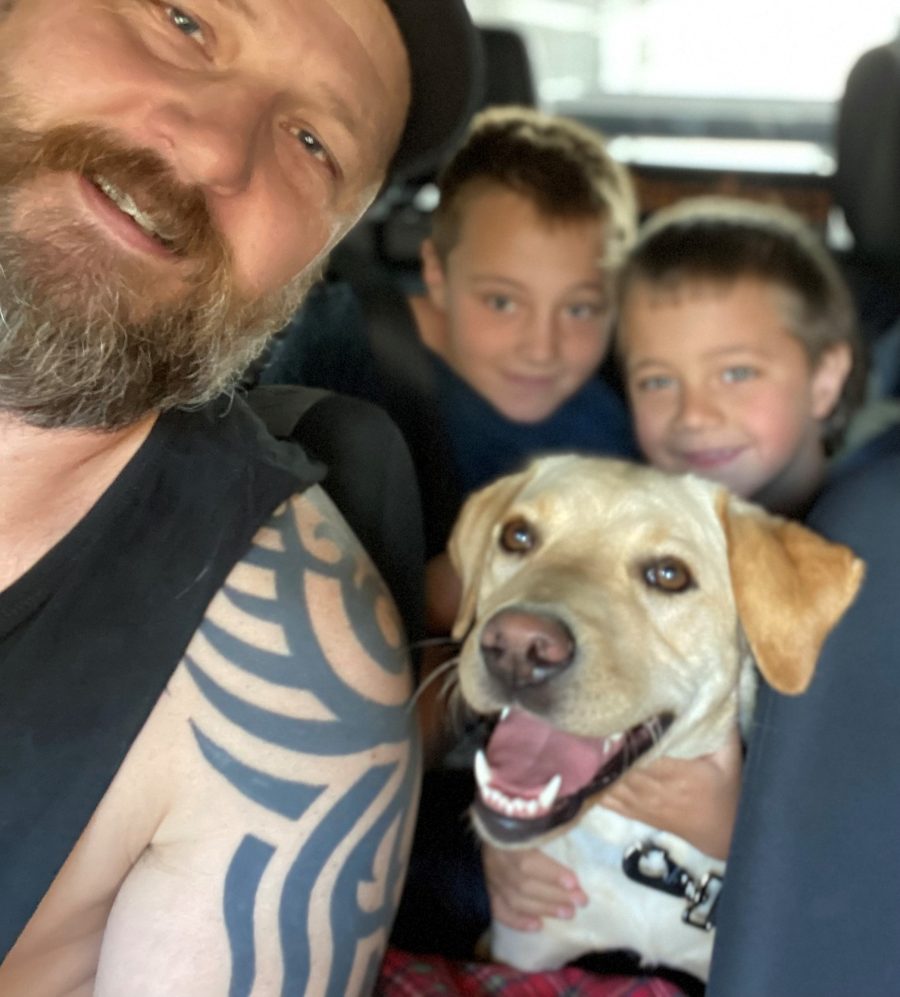
RUOK Day is a national day of action to ask those around us ‘are you OK?’
Have you noticed that someone you know or care about isn’t behaving as they normally would? Trust your gut instinct and act.
Today we respectfully share the story of police officer Jerome and his ongoing experiences with PTSD:
I joined SAPOL in January 2002 after spending the previous 4 years in the Australian Regular Army. My experience within SAPOL is varied – from time at Elizabeth and Salisbury Patrols, CIB Tactical Units and Operation Mantle, Officer in Charge of a small country station, State Tactical Response Group, CIB (Holden Hill and Elizabeth / Northern District), Northern District Volume Crime Section and more recently in my current position at Security Advice Section. In 2007 / 2008 I left SAPOL for 12 months and joined the AFP’s Operations Response Group as a member of the Stability Response Team. During this period I was lucky enough to be deployed to Timor-Leste following the attempted assassinations of the President and Prime Minister in early 2008 as well as operational deployments to Solomon Islands and nationally throughout Australia.
In 2014 whilst attached to State Tactical Response Group I was involved in an incident which ultimately led to a diagnosis of Post-Traumatic Stress, major depression and anxiety in late 2016. This resulted in some time away from work and intensive rehabilitation. I’m happy to say that I was able to return to operational policing in mid-2017 however my recovery is ongoing and I’ve changed roles a number of times in order to manage my PTS symptoms and recovery. My wife at the time was the catalyst for me seeking professional help. I knew deep down that I was struggling and needed to take action, but it was the conversation she started with me and support provided by her at the time which prompted me to take action
At the beginning of 2020 I was lucky enough to be accepted into Department of Veteran Affairs Psychiatric Assistance Dog (PAD) Program due to my previous military service. Over 2 years I undertook training as a handler with already qualified dogs whilst my dog, Bobbi was trained parallel to that in Melbourne. In February 2022 I had handover with Bobbi and the impact she had on my life was immediate. The very first night she woke me from a nightmare and over the proceeding months we’ve developed a very strong bond where now I couldn’t imagine my life without her. Previously any trip to public places was planned with military precision to ensure minimal time ‘on scene’ to try and limit my anxiety and perceived risk. Whilst Bobbi hasn’t been a ‘cure all’ for my PTS symptoms, she does lessen them, and I continue to maintain good mental health through physical activity, yoga and meditation.
Through my lived experience I hope to promote good mental health practices within the veteran and 1st responder community in order to minimise the risk of suffering the same challenges I have whilst breaking down the stigma, so people are comfortable in seeking help early. I’m very open about my mental health challenges with the hope that other military veterans and 1st responders can see that we’re all vulnerable. By the very nature of the jobs we do, there is significant impact on our bodies and mind. Seeking help to manage this impact as early as possible is vitally important. Doing so is not a sign of weakness but rather one of bravery and courage. Prevention is better than cure and if we become physically unwell very rarely do we hesitate in seeking help. I’d like that to extend to the mental health space also. I think it’s important to note a couple of things here. Firstly, if you’re struggling or just don’t feel right the earlier you reach out for help or take action, the better. Secondly, if you recognise that somebody is ‘a bit off’ it doesn’t hurt to ask the question ‘RUOK?’. It may be the catalyst for them seeking the help they need.
There are many resources to help our community who are suffering with their mental health. Visit the below pages to learn more about what help is available and remember to always check in with your loved ones, friends and colleagues. It could save a life.
Our newsletter is produced twice a year and contains information for, and stories about, our members and police legatee community.
We are always interested in hearing new stories, so if you would like to contribute to our newsletter, please let us know!
Supporting South Australian police officers and their families